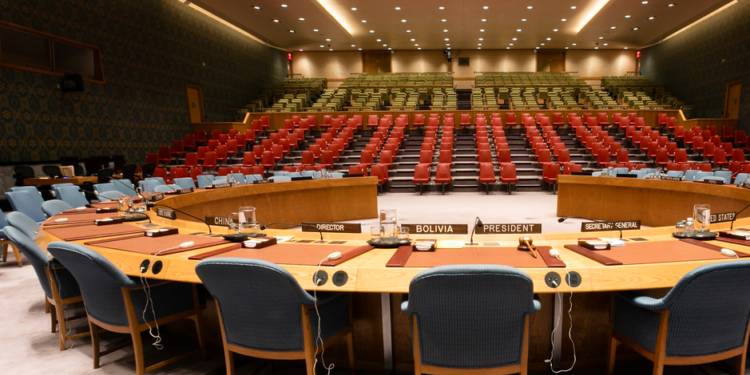By Thomas Verfuss in The Hague
The United Nations Security Council must pay for the investigations and prosecutions it asks the International Criminal Court to undertake, a defence counsel has said.
Cyril Laucci, lead defence counsel for Sudanese war crimes suspect Ali Muhammad Ali Abd-Al-Rahman, stressed this before the judges of an ICC pre-trial chamber during his client’s confirmation of charges hearing that started on Monday May 24, 2021.
This is an old debate. The 123 states parties to the Rome Statute, the founding treaty of the court, fund the International Criminal Court (ICC) in The Hague. In exchange, they can ask the Office of the Prosecutor of the ICC to investigate and prosecute crimes under the jurisdiction of the court for free – much like in a national system, in which taxpayers and other citizens can report crimes they have been victims of or have witnessed without being required to pay anything.
There is another mechanism the jurisdiction of the court can be based upon: The United Nations Security Council (UNSC), based in New York, can ask the ICC to investigate a situation it “refers” to the court. This can happen when the council notes that there is a threat to peace and security in the world. This is a political evaluation and decision under Chapter VII of the Charter of the United Nations.
Such political decisions can also be taken by “superpowers” like the United States of America (USA), China, and Russia, which are not parties to the Rome Statute and thus don’t pay for the ICC’s work.
This stems from the first UNSC referral, when France and the United Kingdom lobbied the council to refer the situation in the Sudanese region of Darfur to the ICC. At the time, it was considered a big success for French and British diplomacy because successive US administrations had been hostile to the ICC. It was considered a great achievement because the government in Washington DC could be convinced not to use its UNSC veto to block a resolution that could strengthen the reputation of the ICC.
But there was a price to pay. The resolution contains two “foul compromises”: The UNSC does not pay for the ICC work it asked for, and only the government of Sudan and the parties to the Darfur conflict have to cooperate with the ICC on the matter – not the USA, which one day might wish to bomb Sudan again, as it did in 1998, in retaliation for the bombing of the American embassies in Kenya and Tanzania.
The UNSC referral of the Darfur (Sudan) situation was adopted years ago, in 2005, in a particular geopolitical and diplomatic situation. However, this decision has been perpetuated for years now, and the same “non-payment model” was adopted in 2011 when the UNSC referred a second “situation” to the ICC – Libya during the Arab Spring.
Furthermore, the ICC is always short of money. Every year, at the annual session of the Assembly of States Parties, there is prolonged debate about the court’s budget. That is why some diplomats have for years been saying that the pro bono (free) work of the ICC must end: that the UNSC must pay its dues.







